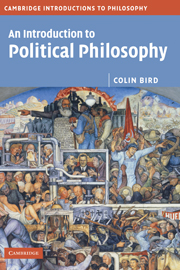1 - The puzzle of justification
Summary
To justify something is to give reasons to value it. “Value” is a vague term, but here it means something stronger than the feeble “like” or “prefer.” When we question whether political practices like slavery, capital punishment, or redistributive taxation are justified, we do not seem to be simply asking whether they are “to our liking.” I might, after all, very much prefer to have a coterie of slaves at my beck and call, but we would not think that personal likes and preferences of this kind (mine or anyone's) decide the question of whether slavery is justified. The question is whether there are general reasons to support or oppose such practices, not whether one might personally prefer them. In other words, then, justifying something seems to require that we demonstrate its value in a rational and impartial way. But how can we establish that we have suitably “impartial” reasons to support or resist some political practice? How can we tell whether arguments purporting to justify it succeed or fail?
One possibility is that they succeed insofar as they actually persuade most people to support (or resist) the practice in question. But we can discount this suggestion immediately. The bare fact that many are led to support something under the influence of purported justifications does not in itself show that the arguments being canvassed are any good. We know that, through skillful propaganda and rhetoric, agents can be manipulated into supporting all kinds of dubious political causes for spurious reasons.
- Type
- Chapter
- Information
- An Introduction to Political Philosophy , pp. 13 - 32Publisher: Cambridge University PressPrint publication year: 2006



